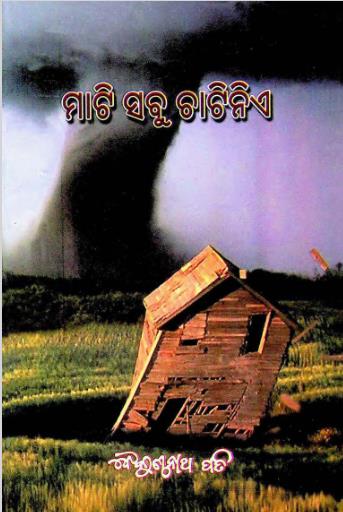Baikunthanath Pati, a prominent figure in Odia literature, has significantly contributed to the emotional and cultural fabric of Odisha through his poetry. One of his notable works, Mati Sabu Chatinia, published in 2012, is a rich tapestry of themes that encapsulates the essence of the Odia identity, nature, and the spirit of the common people. This poem, though concise, offers profound reflections on the relationship between humanity and the earth, wrapped in stirring imagery and evocative language.
At the heart of Mati Sabu Chatinia lies the theme of connection—an intrinsic bond shared between the land and its people. The title itself, which translates to The Earth is Our Mother, underscores the reverence for nature that is deeply embedded in Odisha’s culture. Pati’s poetry resonates with a sense of gratitude towards the earth, portraying it as a nurturing figure that sustains life. This imagery is prevalent in many lines of the poem, where he carefully depicts the landscapes of Odisha, invoking feelings of nostalgia and belonging.
The poem acts as a compilation of various emotions, showcasing the diversity of human experience. It addresses not only the love for nature but also the struggles and resilience of the people who inhabit it. Pati brings to life the tales of the farmers, the laborers, and the average citizens who toil in the fields, connecting their sweat and aspirations to the fertile soil. In this sense, the poem becomes a tribute to the collective effort and enduring spirit of the Odia people, encapsulating their hopes and dreams.
Moreover, Mati Sabu Chatinia employs a variety of literary devices that enhance its lyrical quality. Pati’s use of metaphors and similes creates vivid mental images, allowing readers to visualize the profound beauty of the land. For instance, comparing the earth to a nurturing mother showcases a maternal relationship that elevates the landscape beyond mere geography; it becomes a living entity that embodies love and support.
Another significant aspect of this poem is its rhythmic flow, which mirrors the cadence of traditional Odia music. This musicality not only makes the poem enjoyable to read but also reinforces its connection to Odia cultural practices. The rhythm captures the essence of folk songs and the oral traditions that are a core part of Odisha’s heritage, intertwining the poem with the cultural identity of the region.
Mati Sabu Chatinia also serves as a reflection on modernity and its implications for the relationship between humanity and nature. Pati subtly critiques the displacement and disconnection that often accompanies urbanization, urging readers to remember their roots and the importance of nurturing their bond with the land. This poignant message offers a reminder of the need for sustainable living and respect for the environment, making the poem relevant even in contemporary discussions about ecology.
In closing, Baikunthanath Pati’s Mati Sabu Chatinia is more than just a poem; it is a celebration of Odia culture, a reflection on the ties that bind us to the earth, and a call to honor the legacy of our ancestors. Through his evocative language and rich imagery, Pati invites readers to reconnect with their homeland, ensuring that the spirit of Odisha continues to thrive in the hearts of its people. This compilation of thoughts and emotions makes Mati Sabu Chatinia a timeless piece that resonates with anyone who cherishes the beauty of nature and the depth of human experience.
Books Info
| Books name | Mati Sabu Chatinia / ମାଟି ସବୁ ଚାଟିନିଏ |
| Author | Baikunthanath Pati |
| No Of pages | 66 |
| Publisher | Rashtriya Sahitya Sanstan |
| Publication | 2012 |
| Printed At | Compuprint |
| Distributor | NA |

